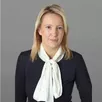The Fifth Money Laundering Directive (MLD5), which will, among other matters, amend the rules on the beneficial ownership of corporates and trusts introduced by the Fourth Money Laundering Directive (MLD4) has been agreed at European level. It is expected to be published in the Official Journal shortly. This Briefing summarises its key provisions.
NEW OBLIGED ENTITIES
Custodian wallet providers and virtual currency exchange platforms have been brought into scope, and will be required to conduct customer due diligence.
FINANCIAL INTELLIGENCE UNITS (FIUs)
FIUs will have wider powers to request, obtain and use information from any obliged entity for the purpose of preventing, detecting and effectively combating money laundering and terrorist financing.
ACCOUNTS
Member States must put centralised automated mechanisms in place to allow the timely identification of those who hold or control payment accounts and bank accounts.
That information should include the names of the account-holder and any person acting on their behalf, the beneficial owner of the account-holder, the account's IBAN, the date the account was opened, and the date the account was closed.
The information in the centralised mechanism must be accessible by national FIUs (who must, in turn, be able to provide that information to other FIUs in a timely manner). National competent authorities must also be able to access that information for the purposes of complying with their obligations under MLD4 as amended by MLD5.
POLITICALLY-EXPOSED PERSONS (PEPs)
Member States will be required to issue and keep updated a list setting out what functions qualify as "prominent public functions" for the purposes of establishing who constitutes a PEP.
Each Member State must also ask each international organisation accredited in its territory to do the same. Those lists must be sent to the Commission and may be made public.
HIGH RISK THIRD COUNTRIES
When identifying high risk third countries, the Commission may also take into account the availability to competent authorities in those countries of accurate and timely information on beneficial ownership. Specific enhanced due diligence measures are also prescribed for business relationships or transactions involving high-risk third countries.
SAFE-DEPOSIT BOXES
In addition to anonymous accounts and anonymous passbooks, Member States must also prohibit banks and financial institutions from keeping anonymous safe-deposit boxes.
PREPAID INSTRUMENTS
Under MLD4, a Member State could provide that certain due diligence does not need to be carried out in respect of prepaid instruments where the payment instrument is not reloadable or has a maximum monthly limit of €250 which can only be used in that Member State, and the maximum amount stored electronically does not exceed €250. Under MLD5, both of those €250 thresholds are being reduced to €150.
NEW BUSINESS RELATIONSHIP: PROOF OF REGISTRATION
When a new business relationship is being entered into with a corporate, trust or similar arrangement in respect of which information on beneficial ownership must be supplied to a central register, the obliged entity must collect proof of registration or an excerpt from the relevant register.
SENIOR MANAGING OFFICIALS
Where a senior managing official is identified as the beneficial owner of a corporate, his/her identity must be verified by the relevant obliged entity.
OWNERSHIP OF REAL ESTATE
Member States must ensure that FIUs and competent authorities are given access to information that allows them to identify, in a timely manner, the owners of real estate.
BENEFICIAL OWNERSHIP OF CORPORATES
The key changes to the rules set out in MLD4 on the identification of beneficial owners of corporates are as follows:
(1) Wider Access
MLD5 broadens access to the central register of beneficial ownership of corporates to any member of the general public (in addition to competent authorities, FIUs and obliged entities). Under MLD4, a person other than a competent authority, FIU or obliged entity would have had to demonstrate a legitimate interest to allow it to access the register.
(2) Obligations on Beneficial Owners
MLD5 requires that the beneficial owners of a corporate provide that corporate with all information necessary to enable it to comply with its obligation to obtain and hold information on its beneficial ownership (the Irish Regulations already contain a provision to this effect).
(3) Reporting Discrepancies
Member States will be required to put mechanisms in place to ensure that the information held on the central register is adequate, accurate and current. This includes requiring obliged entities to report any discrepancies they find between the information that they hold, and the information on the register. If appropriate, the requirement to report discrepancies may be extended to competent authorities.
(4) Timing
MLD5 amends Article 67 of MLD4 to provide that the central register of beneficial ownership of corporates must be set up by 18 months after MLD5 comes into force (approximately the end of 2019, rather than the MLD4 deadline of 26 June 2017).
BENEFICIAL OWNERSHIP OF TRUSTS
The key changes to the rules set out in MLD4 on the identification of beneficial owners of trusts are as follows:
(1) Beneficial Owners
In the case of trusts, all of the following are beneficial owners: the settlor(s), the trustee(s), any protector(s), the beneficiaries (or if they have not yet been determined, the class of persons in whose main interest the trust is set-up or operates) and any other individual who exercises ultimate control over the trust by direct ownership, by indirect ownership, or by any other means.
(2) Scope
Article 31 of MLD4 (as amended by MLD5) deals with the beneficial ownership of trusts, and will apply to both trusts and other type of legal arrangements with a structure or function similar to that of a trust. Each Member State must identify the characteristics that will enable them to determine whether a legal arrangement has a structure or function similar to that of a trust.
(3) Central Register
The MLD4 requirement that an express trust must generate tax consequences for it to be in-scope for the central register of beneficial ownership information on trusts has been removed. Under MLD5, beneficial ownership information on any express trust, irrespective of whether it generates tax consequences, must be included in the central register.
(4) Wider Access
MLD5 broadens the scope of those who will be able to access the central register of beneficial ownership of trusts beyond competent authorities, FIUs and obliged entities, to any natural or legal person that can demonstrate a legitimate interest.
(5) Legitimate Interest
The term "legitimate interest" is not defined by MLD5 – each Member State will be required to define the term (both as a general concept, and as a criteria for accessing beneficial ownership information on trusts). MLD5 notes that any such definition should not restrict the concept to pending proceedings, and should take account of the preventative work undertaken by investigative journalists and non-governmental organisations in the area of anti-money laundering and counter terrorist financing.
(6) Types of Trusts
Each Member State will have 12 months from when MLD5 comes into force to inform the Commission of the categories, characteristics, names and, where applicable, legal basis of in-scope trusts and similar legal arrangements. The Commission must then publish a list of those trusts and similar legal arrangements within 14 months of MLD5 coming into force.
(7) Location of Trustee
The relevant central register will be that of the Member State where the trustee of the trust is established or resides. Where the trustee is based outside the EU, the relevant Member State will be the one where the trustee establishes a business relationship or acquires real estate in the name of the trust. Where there are multiple trustees located in different Member States, an extract of the beneficial ownership information held in respect of that trust on the central register in one Member State may be regarded as sufficient to treat the registration obligation as having been fulfilled in each relevant Member State.
(8) Reporting Discrepancies
The same requirement as set out above in respect of reporting discrepancies concerning beneficial ownership information on corporates will also apply to trusts.
(9) Security
MLD4 allowed each Member State to provide for an exemption from access to certain beneficial ownership information for various reasons linked to the security of the beneficial owner. The ability to provide for such an exemption has been extended to cover beneficial ownership information in respect of trusts.
(10) Interconnection of Registers
MLD5 has introduced a similar requirement for trusts to that introduced by MLD4 in respect of corporates – the central registers in each Member State must be interconnected via the European Central Platform. The Commission will adopt various implementing acts setting out how that system of interconnection will work.
(11) Timing
MLD5 amends Article 67 of MLD4 to provide that the central register of beneficial ownership of trusts and similar legal arrangements must be set up by 20 months after MLD5 comes into force (approximately early 2020, rather than the MLD4 deadline of 26 June 2017). It is not yet clear who will maintain that register in Ireland.
TRANSPOSITION
Member States will have 18 months to transpose the other provisions of MLD5 into national law (approximately the end of 2019).
FURTHER INFORMATION
Arthur Cox AML Update: Bill transposing MLD4 published
Text of MLD5 as approved by the European Council
The content of this article is intended to provide a general guide to the subject matter. Specialist advice should be sought about your specific circumstances.




